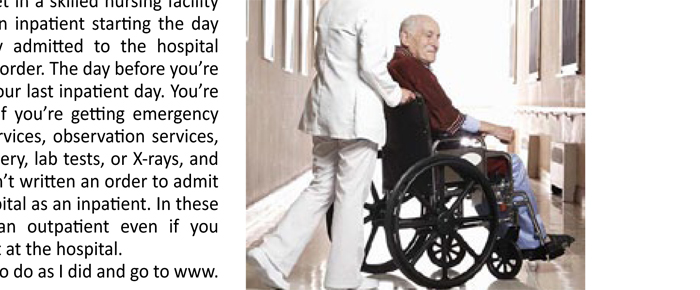
by Dale Gribow
Most people of a certain age have seen the movie The 10 Commandments. If you are like me you remember Charlton Heston climbing the mountain empty handed, only to descend with the preverbal two tablets containing the 10 divine decrees that are the guideposts of our Judeo Christian religions. My topic this week focuses on the 5th Commandment which mandates Honoring Your Mother and Father, and that we, the children of the sandwich generation, although well-intentioned, actually have not a clue how to weed through the maze of healthcare challenges our government has imposed upon us.
My epiphany to learn and share information on helping seniors and those who love them stems from some very personal experiences. First, it is becoming more prevalent in my practice to see instances where elderly seniors, are left to fend for themselves on estate planning issues a DUI or auto accident, and of course health issues. This is often due to their children and/or siblings not always being available, or the relatives simply not understanding the system and where to go for assistance.
The most important situation that brought me to my ‘aha’ moment was witnessing the process of admission for my mother-in-law who a few months ago experienced a few falls causing her dementia to rapidly progress. These events sent her into a tailspin from which she continues to recover today.
Please let me share some valuable information my wife and I learned the hard way, the anguishing way when my Mother in Law would not be admitted to the hospital because her health conditions did not meet the computer guidelines for Medicare admission. She was ill, and on our 4th attempt to admit, she met the criteria. Granny was hospitalized to then be sent to an excellent Skilled Nursing Facility where she spent 2 months in therapy and is now back into an assisted living environment where nurses are on duty.
Did you know that even if you stay in the hospital overnight, you might still be considered an “outpatient”? Your hospital status (whether the hospital considers you an “inpatient” or “outpatient”) affects how much you pay for hospital services (like X-rays, drugs, and lab tests) and may also affect whether Medicare will cover the care you get in a skilled nursing facility (SNF). You’re an inpatient starting the day you’re formally admitted to the hospital with a doctor’s order. The day before you’re discharged is your last inpatient day. You’re an outpatient if you’re getting emergency department services, observation services, outpatient surgery, lab tests, or X-rays, and the doctor hasn’t written an order to admit you to the hospital as an inpatient. In these cases, you’re an outpatient even if you spend the night at the hospital.
For more info do as I did and go to www.Medicare.gov
Can we abide by the 5th commandment? Yes we can. Knowledge is power.
If you have any questions regarding this column or ideas for future columns please contact Dale Gribow Attorney at Law at our NEW number 760 837 7500 and or our new email of dale@dalegribowlaw.com








































